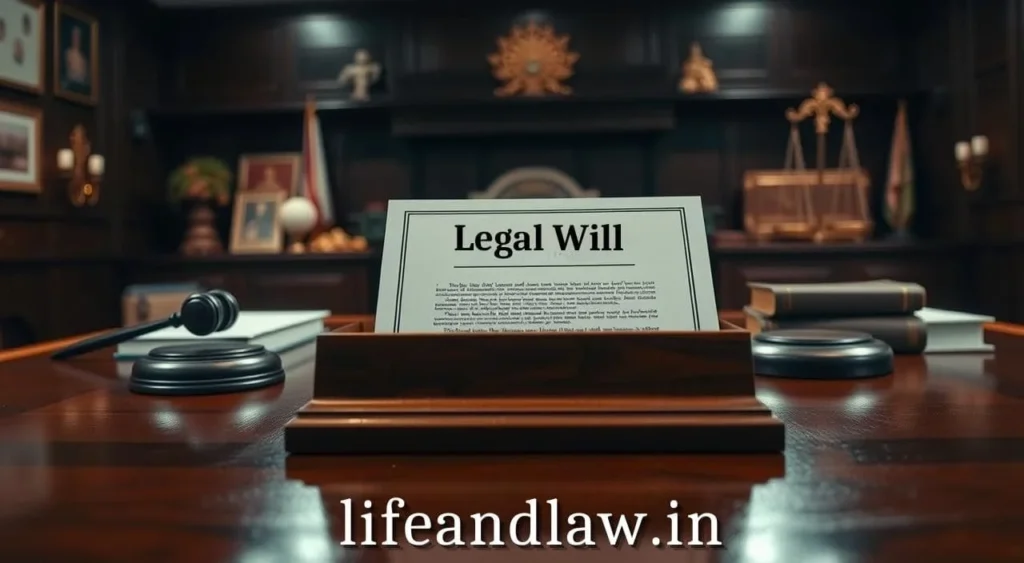Trending

A will is a legal instrument that ensures your possessions are dispersed in accordance with your preferences after death, thus preventing disputes among heirs. However, many people make typical blunders while creating their wills, which can result in confusion, disagreement, or even legal invalidation.
This article discusses five significant mistakes to avoid when creating a will and provides advice on how to ensure your will is clear, legally legitimate, and successfully safeguards your family’s future.
A will is a legal document that specifies how a person’s property should be allocated after death, thus preventing disputes among heirs. A valid will, according to the Indian Succession Act of 1925, must be in writing, signed by the testator, and attested by two witnesses.
Without a formal will, property is dispersed in accordance with inheritance laws, which may not reflect the person’s genuine wishes—so it is critical to draft a proper will.
1.Not Writing the Will
One of the most serious mistakes people make is not putting their will on paper. While some people communicate their wishes directly to family or friends, oral wills are rarely legally recognized. Proving the legitimacy of a spoken will is extremely difficult since it lacks written proof, context, and adequate attestation.
There are a few exceptions, such as military members making an oral will during conflict, but even these require careful inspection and documentation to be accepted in court. A written will removes ambiguity and acts as a verifiable, legally binding document. It should include the testator’s signature as well as those of at least two witnesses to be presented in court.
2.Lack of Proper Witnesses
A legitimate will must be witnessed by two competent individuals. Improper witness selection is a common blunder that can compromise the validity of the will. People frequently choose family members or close relatives as witnesses, sometimes even heirs, which might raise concerns about the document’s legitimacy and potential conflicts of interest.
The witnesses must be:
Trustworthy and neutral
Mentally sound, above the age of 18
Able and willing to testify in judicial processes if necessary.
Furthermore, the witnesses’ signatures must be made in the presence of the testator; otherwise, the will may be ruled void. Choosing the right witnesses is critical to ensuring the document’s legal status.
3. Giving Ambiguous Property Details
Vague or insufficient property descriptions might cause disagreements among successors. A generic statement such as “my children” may cause confusion among biological and stepchildren or adopted children, resulting in arguments about who is included.
To prevent misinterpretation:
Clearly mention all sorts of property, such as houses, land, bank accounts, jewels, or artwork
Describe who receives what and under what circumstances
Avoid broad phrases and unspecified shares
Consult with a legal expert to draft property details appropriately
Precise terminology and asset descriptions help to avoid legal problems and ensure a smooth distribution.
4.Not Mentioning the Correct Heirs
Another severe problem is failing to identify heirs accurately. Generic terms like “my children” or “my siblings” might cause confusion and legal issues, especially if there are several people who fit into those categories. Incorrect identification may also cause unwanted beneficiaries to initiate claims against the estate.
To avoid these issues:
Provide the full names and relationships of all beneficiaries
Clearly define each heir’s entitlement
Include identification details as needed to avoid ambiguity
This reduces the chance of controversy and ensures that the will accurately reflects your genuine wishes.
5.Not Registering the Will
While registration of a will is not legally required under Indian law, it is strongly advised. A registered will has greater legal weight and credibility in the eyes of the court. It also reduces the possibility of tampering, forgery, or questions over authenticity.
The advantages of registering a will include:
Increased legal protection and trustworthiness
Provides easier verification of validity in legal processes
Reduced risk of legal challenges from unhappy family members
Simplified procedure for making future modifications
Failure to register a will may result in legal challenges, including resistance from individuals who may submit an alternative version or contest its legitimacy. Registered wills are easier to defend in court and usually have more evidential weight.
Drafting a will involves legal knowledge, clarity, and precision. Any oversight, such as an oral will, ambiguous property specifics, or badly chosen witnesses, might result in unnecessary legal issues and family tensions. A valid and well-drafted will assures that your possessions are dispersed just as you planned, with no legal doubt.
It is usually advisable to get competent legal advice when preparing your will. Consulting with legal advisors, such as Adv. Abdul Mulla through platforms such as www.asmlegalservices, www.easywillindia.com, and www.lifeandlaw.in, can help you avoid costly mistakes and secure your family’s future.
By avoiding these five big blunders, you can establish a will that is legally sound, transparent, and able to withstand any legal scrutiny, providing peace of mind for both you and your family.
Adv. Abdul Mulla (Mob. No. 937 007 2022) is a seasoned legal professional with over 18 years of experience in advocacy, specializing in diverse areas of law, including Real Estate and Property Law, Matrimonial and Divorce Matters, Litigation and Dispute Resolution, and Will and Succession Planning. read more….
Copyright BlazeThemes. 2025